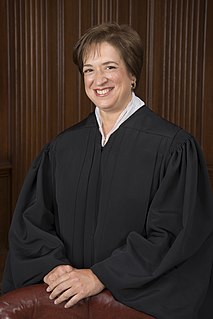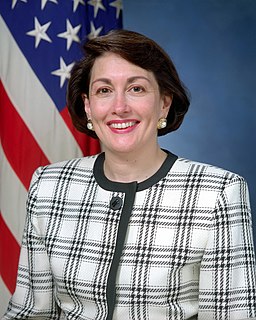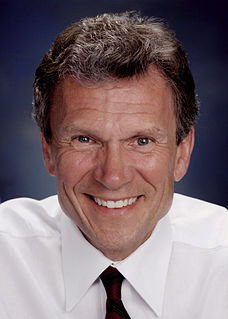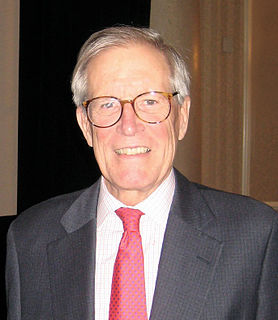A Quote by Elena Kagan
I do not espouse the unitarian position. President Clinton's assertion of directive authority over administration, more than President Reagan's assertion of a general supervisory authority, raises serious constitutional questions.
Related Quotes
Under Article II, all executive power is vested in one president of the United States. The regulatory state is Congress's efforts to undermine the president's authority. And my hope is we will see a president use that constitutional authority to rein in the uncontrollable, unelected bureaucrats and to rescind regulations.
The Department of Justice believes, and the case law supports, that the president has inherent authority to conduct warrantless physical searches for foreign intelligence purposes, and that the president may, as has been done, delegate this authority to the attorney general. It's important to understand, senators, that the rules and the methodology for criminal searches are inconsistent with the collection of foreign intelligence and would unduly frustrate the president in carrying out his foreign intelligence responsibilities.
The president does not have power under the Constitution to unilaterally authorize a military attack in a situation that does not involve stopping an actual or imminent threat to the nation. As commander in chief, the president does have a duty to protect and defend the United States. In instances of self-defense, the president would be within his constitutional authority to act before advising Congress or seeking its consent.
The Anarchists are right in everything; in the negation of the existing order, and in the assertion that, without authority, there could not be worse violence than that of authority under existing conditions. They are mistaken only in thinking that Anarchy can be instituted by a revolution. "To establish Anarchy." "Anarchy will be instituted." But it will be instituted only by there being more and more people who do not require protection from governmental power, and by there being more and more people who will be ashamed of applying this power.
there ought always to be a constitutional method of giving efficacy to constitutional provisions. What for instance would avail restrictions on the authority of the state legislatures, without some constitutional mode of enforcing the observance of them? . . . This power must either be a direct negative on the state laws, or an authority in the federal courts, to over-rule such as might be in manifest contravention of the articles of union.
What causes adolescents to rebel is not the assertion of authority but the arbitrary use of power, with little explanation of therules and no involvement in decision-making. . . . Involving the adolescent in decisions doesn't mean that you are giving up your authority. It means acknowledging that the teenager is growing up and has the right to participate in decisions that affect his or her life.
Literally minutes before the Senate cast its vote, the administration sought to add the words 'in the United States and' after 'appropriate force' in the agreed-upon text. This last-minute change would have given the president broad authority to exercise expansive powers not just overseas-where we all understood he wanted authority to act-but right here in the United States, potentially against American citizens. I could see no justification for Congress to accede to this extraordinary request for additional authority. I refused.
Molecular evolution is not based on scientific authority. . . . There are assertions that such evolution occurred, but absolutely none are supported by pertinent experiments or calculations. Since no one knows molecular evolution by direct experience, and since there is no authority on which to base claims of knowledge, it can truly be said that . . . the assertion of Darwinian molecular evolution is merely bluster.
































